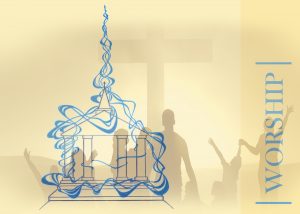
The church by nature must be compassionate; caring for the poor, the emotionally hurt, the abused, the destitute and the unborn. In our efforts to show compassion we can easily become overwhelmed. After all, how can we possibly make a dent amongst all the pain and the suffering we see around us every day? As we begin to attempt to show compassion, we can sometimes lose focus of our purpose as the church. Our commission is to go into all the world and preach the Gospel (Matthew 28).
Throughout the Bible, we see God described as a compassionate Father (Psalm 103:13). The ministry of Jesus always demonstrated compassion, through his teaching, miracles of healing and the ultimate display of compassion was when he allowed himself to be crucified to atone for our sins.
Whenever we see compassion demonstrated in the Bible, it is shown as an emotion that is followed up by action. As compassionate people, we are stirred by emotion at the sight of pain or injustice and thus we are moved to action (Colossians 3:12).
The Gospel of Matthew gives us a clear picture of the compassion of Jesus. In chapter 8, the Apostle lists for us a series of miracles, then in chapter 9 we read the account of Jesus healing the paralyzed man (Matthew 9:1-8).
Jesus had been healing many people, but this time he did something different, he said “your sins are forgiven”.
The religious leaders were offended because Jesus was claiming to do something that only God can do, and that was blasphemy. Jesus confronts them and proceeds to heal the man after challenging the teachers.
To the bystander, it seems easier to walk up to a sick person and say “your sins are forgiven”, because no proof is required, there is no way of knowing. But when Jesus heals the man, the demonstration of his power gives credibility and proof to the fact that he can forgive sins.
Jesus saw the greater need of the man, and still the greater need of all humanity, the problem of sin. The greatest need of every human being, whether they are sick or healthy, rich or poor; is the need for forgiveness of sins. By Jesus forgiving this man’s sins, he is showing real compassion, meeting the man’s real need, not only his temporal need.
As Jesus goes through the towns, teaching, and performing miracles, we read further in verse 36 that Jesus is moved by compassion. He turns to his disciples and makes the statement that is frequently quotes in missionary circles; “the harvest is plentiful but the workers are few. Ask the Lord of the harvest, therefore, to send out workers into his harvest field.” Jesus, moved by compassion as he sees the multitudes of people who are destined for an eternity in hell, tells his disciples to pray that God would multiply the work force.
The prayer to pray for workers must be fueled by a heart of compassion.
But Jesus doesn’t stop there with his disciples, in the very next verse in chapter 10, Jesus calls his disciples, he empowers them and he sends them out. As Jesus sends them out, notice that their title changes from disciple to apostle. An apostle means someone who is sent out as an official representative.
This is an important transition that takes place; Jesus encourages his followers to pray for workers, and then he sends them out in response to that prayer. And as we pray that prayer, we need to realize that we are part of the solution.
A prayer of compassion does not excuse us from acts of compassion.
That is true compassion, the same compassion that Jesus has for us when he stepped down from his throne in glory and became as one of us to save us.
There are two extremes of compassion in modern day Christianity:
The one is what has become known as the social gospel, where so much focus is on meeting felt needs that the presentation of the Gospel is neglected. The danger in this is that we are helping people for a short term, but neglecting their eternal condition. Sometimes the motivation behind this compassion is the desire to earn our salvation, desperately trying to do enough good things to justify our salvation. Or maybe we serve out of guilt for our past sins, and in some way, we are trying to make things right.
However, the Bible is clear; we are all desperate sinners and no amount of good works will ever earn us salvation, we are saved only by the grace of God through the cross of Jesus Christ (Ephesians 2:8-10).
Charles Spurgeon once said; “the child of God works not for life, but from life; he does not work to be saved, but because he is.”
The other extreme is the church that is so inwardly focused on their own fellowship that they ignore the needs and the desperate situations of their community. There are many possible reasons for this; one possible reason is simply that the church is overwhelmed by the needs around them and simply chose to look the other way.
Another possibility is a church that has served the community for years and helped so much out of their own strength, that they have become fatigued and burnt out in serving and trying to meet all the needs.
Neither of these two extremes are healthy, nor do they bring Glory to God. As we endeavor to be compassionate and missional, we must pray that we would have discernment in knowing what needs God would have us meet as a church. The answer to that dilemma is found by asking the Holy Spirit to give us guidance and direction.
Compassion under the Guidance of the Holy Spirit provides Temporal Relief but yields Eternal Results.
Our own strength and resources can at best provide some temporary relief to someone in need, but our resources coupled with the power of the name of Jesus, will lead to life transformation and eternal salvation. Every human being on the planet has a desperate need, a need that can only be met by Jesus Christ.

 Nehemiah 8:1-12
Nehemiah 8:1-12

